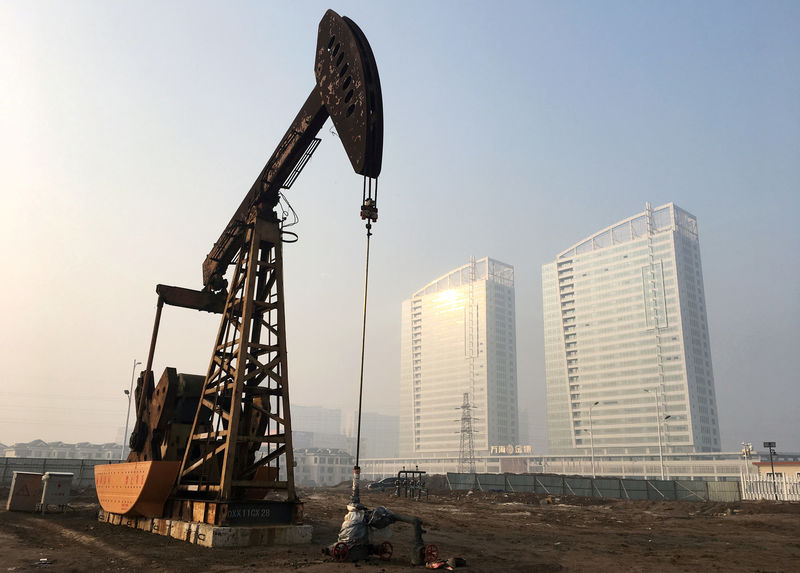By Henning Gloystein
SINGAPORE (Reuters) - Oil prices were firm on Tuesday, holding near a four-year high reached the previous day as markets adjust to the prospect of tighter supply once the U.S. sanctions against Iran kick in next month.
Brent crude oil futures (LCOc1) were at $84.94 per barrel at 0223 GMT, down 4 cents from their last close, but not far off the $85.45 peak reached in the previous session, the highest since November 2014.
Brent has risen by around 20 percent from the most recent lows in August.
U.S. West Texas Intermediate (WTI) crude futures (CLc1) were up 19 cents, or 0.3 percent, at $75.49 a barrel.
WTI is up by almost 18 percent since mid-August.
Market sentiment was lifted by a last-gasp deal to salvage NAFTA as a trilateral pact between the United States, Mexico and Canada, rescuing a $1.2 trillion a year open-trade zone that had been about to collapse.
More fundamentally, oil markets have been pushed up by looming U.S. sanctions against Iran's oil industry, which at its most recent peak this year supplied almost 3 percent of the world's almost 100 million barrels of daily consumption.
Trade data in Refinitiv Eikon showed Iran's seaborne exports in September were just 1.9 million barrels per day, the lowest level since mid-2016.
"Our oil analysts believe there is now a growing risk it (crude) could touch $100 per barrel," HSBC said in its fourth quarter Global Economics outlook.
Graphic: Iran seaborne crude oil exports (https://tmsnrt.rs/2Osb61V)
Washington's sanctions are set to start on Nov. 4, and analysts say there may not be enough spare production capacity in the short-term to meet demand, potentially requiring large storage drawdowns.
"The camp of believers that $100 oil could be reached continues to expand, with spare capacity concerns continuing to grow," said Brian Kessens, managing director at investment services firm Tortoise.
The Organisation of the Petroleum Exporting Countries (OPEC), of which Iran is a member, has struggled to replace export falls from Iran, according to a Reuters survey published on Monday.
With crude prices soaring and many currencies in emerging markets, including India's rupee and Indonesia's rupiah declining, analysts warn that economic growth may be eroded.
"U.S. (fiscal) tightening, higher oil prices and ongoing trade frictions are all taking their taking their toll on the growth outlook," HSBC said.
